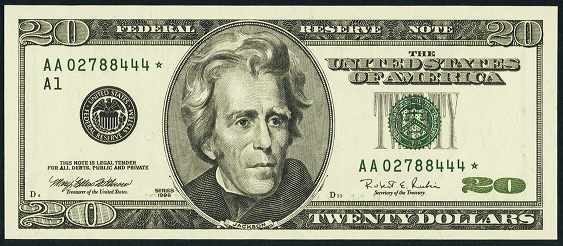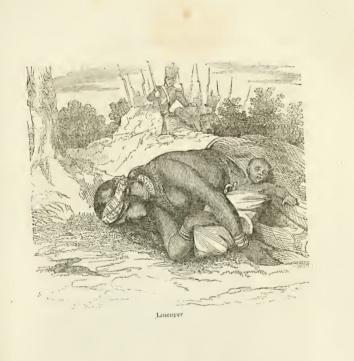Hero or Villain?
The seventh president of the United States of America. The influential face on the U.S. twenty-dollar bill. The man who paved the way for a new era of exploration and American expansion.
What if I told you that this same person grew up an orphan living in poverty who later became a wealthy owner of a slave-worked plantation, and according to Roxanne Dunbar Ortiz, author of An Indigenous People's History of the United States, "carried out the final solution-elimination of all the Indigenous communities east of the Mississippi through forced removal." According to learnodo-newtonic.com, Andrew Jackson, (We'll call him AJ for short) was a dedicated, hard-working military general who led the U.S. troops into victory against the British in the War of 1812 and against the Native Americans during the Creek War. But what some fail to realize is that he was a proponent of "Indian removal." AJ wanted to clear newly acquired territories of the Native Americans who lived there so that white settlers could claim the land as their own. According to historycontext.wordpress.com, "Andrew Jackson's Indian Removal Act resulted in the forced relocation of nearly 50,000 Native Americans and opened up 25 million acres of Native American land to white settlement." Yikes!
Although he may have had America's best interest at heart, his end goal was to literally alienate and wipe out all Native Americans from their land. Not only is that extreme discrimination, but it's also completely turning against his beliefs of a democracy. If he was 'for the people' then why would he go all Christopher Columbus against an entire race!? Doesn't seem in the least bit ethical or civilized to me. And what's even more disturbing is that some people (*cough cough* the government) thought it would be a respectable idea to put his face on the United States twenty-dollar bill! So now whenever I want to get some ice cream with my eleven year-old sister, I pull out that crispy green bill with a smile on my face as I exchange it for a delicious dessert, only to look at it and see a cold blooded killer staring back at me. If I can't even get a day off from school for Christopher Columbus, then why is AJ the face of our U.S. currency! Honestly, it's a mystery to me.
Sure, there are a number of reasons why Andrew Jackson's legacy shouldn't be honored in American society, but believe it or not, there is another side to this argument. On a more positive note, AJ's loyalty and stubbornness led to his determination to lead America to victory no matter what. He was a unique president because of his decisions regarding the passing, or more specifically, the vetoing of bills proposed by Congress. According to Daniel Feller, Professor of History at the University of Tennessee and editor of The Andrew Jackson Papers, "In eight years, Congress passed only one major law, the Indian Removal Act of 1830, at his behest. During this time Jackson vetoed twelve bills, more than his six predecessors combined. One of these was the first "pocket veto" in American history." Because of his resilience against Congress, AJ was able to reach Americans on a common ground. In his First Inaugural Address on Wednesday, March 4, 1829, Andrew Jackson stated, "As long as our Government is administered for the good of the people, and is regulated by their will; as long as it secures to us the rights of person and of property, liberty of conscience and of the press, it will be worth defending; In other words, AJ made it clear when he was elected that he cared deeply about Americans and their voices being heard, and that if Congress didn't honor that, then he wouldn't honor Congress.
Another surprising, yet enlightening character trait of AJ's was his ability to empathize with a Creek Indian orphan. According to the U.S. National Park Service, "A survivor of Battle of Tullushatchee, the baby boy was found clinging to his dead mother’s breast after American forces overwhelmed the small Creek village, killing at least 186 Creek men and taking over 80 prisoners, including women and children." None of the surviving mothers who had been severely injured wanted to take care of the baby, so he was taken to Andrew Jackson who ended up adopting him, and later naming him, Lyncoya Jackson. AJ explained how he felt, "unusual sympathy" for the baby because it reminded him of his difficult childhood in which he too lived as an orphan. With this being said, there is do doubt that Andrew Jackson showed evidence of having empathy for this helpless orphan baby. However, I'm still a bit conflicted over the fact that AJ orchestrated the deaths of hundreds of Creek men, women, and children. As this heated dispute comes to an end, I have one question for you: Was Andrew Jackson a Hero or a Villain?
Resources:
Lillian Goldman Law Library. (2008). First Inaugural Address of Andrew Jackson. Retrieved from http://avalon.law.yale.edu/19th_century/jackson1.asp
 |
| United States of America Twenty-dollar bill, with AJ's face on it (PaperMoneyWanted.com) |
What if I told you that this same person grew up an orphan living in poverty who later became a wealthy owner of a slave-worked plantation, and according to Roxanne Dunbar Ortiz, author of An Indigenous People's History of the United States, "carried out the final solution-elimination of all the Indigenous communities east of the Mississippi through forced removal." According to learnodo-newtonic.com, Andrew Jackson, (We'll call him AJ for short) was a dedicated, hard-working military general who led the U.S. troops into victory against the British in the War of 1812 and against the Native Americans during the Creek War. But what some fail to realize is that he was a proponent of "Indian removal." AJ wanted to clear newly acquired territories of the Native Americans who lived there so that white settlers could claim the land as their own. According to historycontext.wordpress.com, "Andrew Jackson's Indian Removal Act resulted in the forced relocation of nearly 50,000 Native Americans and opened up 25 million acres of Native American land to white settlement." Yikes!
| Cartoon depicting a symbolic representation of the Indian Removal Act and its negative aspects (Historycontext.wordpress.com) |
Although he may have had America's best interest at heart, his end goal was to literally alienate and wipe out all Native Americans from their land. Not only is that extreme discrimination, but it's also completely turning against his beliefs of a democracy. If he was 'for the people' then why would he go all Christopher Columbus against an entire race!? Doesn't seem in the least bit ethical or civilized to me. And what's even more disturbing is that some people (*cough cough* the government) thought it would be a respectable idea to put his face on the United States twenty-dollar bill! So now whenever I want to get some ice cream with my eleven year-old sister, I pull out that crispy green bill with a smile on my face as I exchange it for a delicious dessert, only to look at it and see a cold blooded killer staring back at me. If I can't even get a day off from school for Christopher Columbus, then why is AJ the face of our U.S. currency! Honestly, it's a mystery to me.
 |
| Visual representation of various tribes and their routes of relocation (National Geographic) |
Sure, there are a number of reasons why Andrew Jackson's legacy shouldn't be honored in American society, but believe it or not, there is another side to this argument. On a more positive note, AJ's loyalty and stubbornness led to his determination to lead America to victory no matter what. He was a unique president because of his decisions regarding the passing, or more specifically, the vetoing of bills proposed by Congress. According to Daniel Feller, Professor of History at the University of Tennessee and editor of The Andrew Jackson Papers, "In eight years, Congress passed only one major law, the Indian Removal Act of 1830, at his behest. During this time Jackson vetoed twelve bills, more than his six predecessors combined. One of these was the first "pocket veto" in American history." Because of his resilience against Congress, AJ was able to reach Americans on a common ground. In his First Inaugural Address on Wednesday, March 4, 1829, Andrew Jackson stated, "As long as our Government is administered for the good of the people, and is regulated by their will; as long as it secures to us the rights of person and of property, liberty of conscience and of the press, it will be worth defending; In other words, AJ made it clear when he was elected that he cared deeply about Americans and their voices being heard, and that if Congress didn't honor that, then he wouldn't honor Congress.
 |
| Illustration of The First Inauguration at the Capitol's East Front: Andrew Jackson, 1829 |
 |
| Illustration portraying the conditions in which Lyncoya Jackson was found, (John Frost’s 1860 biography, A Pictorial History of Andrew Jackson) |
Resources:
Bouton, C. (2017, February 21). The Trouble with Andrew Jackson. Retrieved from https://historycontext.wordpress.com/2017/02/21/the-trouble-with-andrew-jackson/.
Feller, D. (2017, June 20). Andrew Jackson: Impact and Legacy. Retrieved from https://millercenter.org/president/jackson/impact-and-legacy.
Meehan, B., Marcelino, & Meehan, B. (2017, November 10). 2006 $20 Federal Reserve Note Value - How much is 2006 $20 Bill Worth? Retrieved from https://www.papermoneywanted.com/2006-twenty-dollar-federal-reserve-notes.
Ortiz, R. D. (2014). An Indigenous People's History of the United States. Boston, Massachusetts: Beacon Press.

Comments
Post a Comment